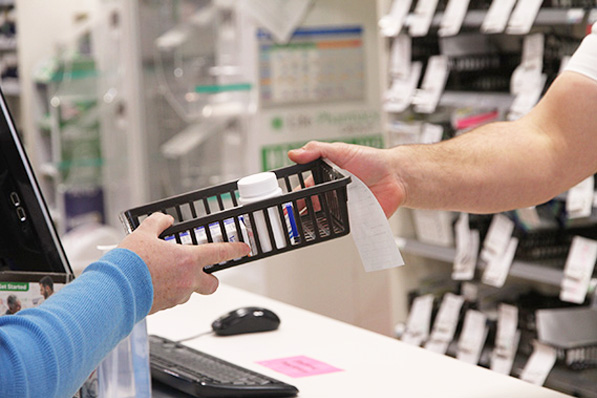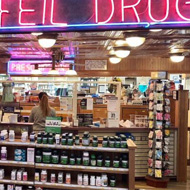Debate in Federal Parliament – to enable pharmacists to substitute a different medicine for one that has been prescribed where there is a serious scarcity of the prescribed medicine – has seen the role of pharmacists during the COVID-19 pandemic over the past year highlighted by MPs from the Government and the Opposition.
The Therapeutic Goods Amendment (2020 Measures No. 2) Bill 2020 was introduced by Assistant Minister Trevor Evans MP, who said it would remove a potential impediment to the Government's response to the COVID-19 pandemic.
These impediments were in relation to the importation and supply of COVID-19 vaccines in Australia; supporting continued access to prescription medicines during a serious scarcity of such medicines in Australia; and improving access to therapeutic goods for Australians; and to enhance patient safety.
“In particular, the bill allows pharmacists to substitute a medicine for which there is a serious scarcity with a suitable alternative medicine, to avoid the risk of disruption to treatment for Australians that may be caused by a medicine shortage and the major impact that can have on patient health,” he said.
“Pharmacists will be able to substitute medicines without prior authority from a prescriber, but only where it is safe and appropriate to do so.
“The bill supports patient safety by allowing regulations to establish a unique device identification database for medical devices in Australia. This will improve monitoring and traceability of devices supplied in Australia and enable quicker responses to safety issues and device defects.
Liberal MP and medical researcher Dr Katrina Allen said the legislative amendments would ensure that the alternatives, including formulation and dosage changes, could be provided by pharmacists if there is a serious shortage.
“For instance, a pharmacist can provide two 10 milligram tablets instead of a 20 milligram tablet, if that is not available,” she said.
“I have to say that a frequent occurrence in daily practice is a pharmacist having to resend a script because they have a short-term shortage of 20 milligram tablets instead of 10 milligram tablets.
“A pharmacist can now provide a capsule rather than a tablet, or a topical cream rather than a skin patch, if there is indeed a serious shortage of a vital medicine. These are practical and safe alternatives that help ensure vital medicines are supplied to patients in serious need.”
Labor MP and pharmacist Emma McBride said: “I've undergone the training myself to be an immuniser, as have thousands of other pharmacists who are trained, prepared and ready to be part of this big nationwide effort.
“Community pharmacists, at this stage, are expected to administer the AstraZeneca vaccine in phase 2, subject to approval, and it's possible further vaccines will be approved for administration later in the year.
“While this is very welcome and I'm really pleased to see it, industry representative bodies have noted the clear recommendation from the King Review that indicated the need to ensure adequate funding for services that pharmacists provide outside PBS expenditure.
“Pharmacists, like general practitioners and other medical professionals, are required to adhere to the strict protocols to administer the vaccine to the community.
“GPs are concerned around the level of remuneration, and, intuitively, pharmacists are concerned as well, particularly given that they must adhere to the same criteria and, as it stands currently, for less remuneration.”
Looking at the issue of medicine shortages, Ms McBride said more needed to be done.
“Pharmacists like myself are all too familiar with medicine shortages, and they face these problems, as I mentioned, day to day – even before COVID-19.
“I have first-hand experience dealing with shortages in both community pharmacies and in our local hospital.
“I mentioned before the example of sertraline, one of the most commonly-prescribed medications – an antidepressant.
“At one point, multiple brands were just not available for people. As a specialist mental health pharmacist, I was involved in securing medicines through the TGA Special Access Scheme for patients at high risk if they were forced to discontinue or change medications.
“As a former chief pharmacist, I sat on the local Drug and Therapeutics Committee of Central Coast health, and we would deal with problems of this nature.
“Now, as a local MP, I'm hearing again the problems faced through COVID of people not being able to get infant Panadol or their Ventolin inhaler.
“Medicine and medical device shortages represent a growing and potentially life-threatening risk.”
Labor MP Ged Kearney praised pharmacists, carers and healthcare workers who “stood in pouring rain, blistering heat and fume-filled carparks” to test hundreds of thousands of Australians for COVID.
The bill is currently before the Senate.


